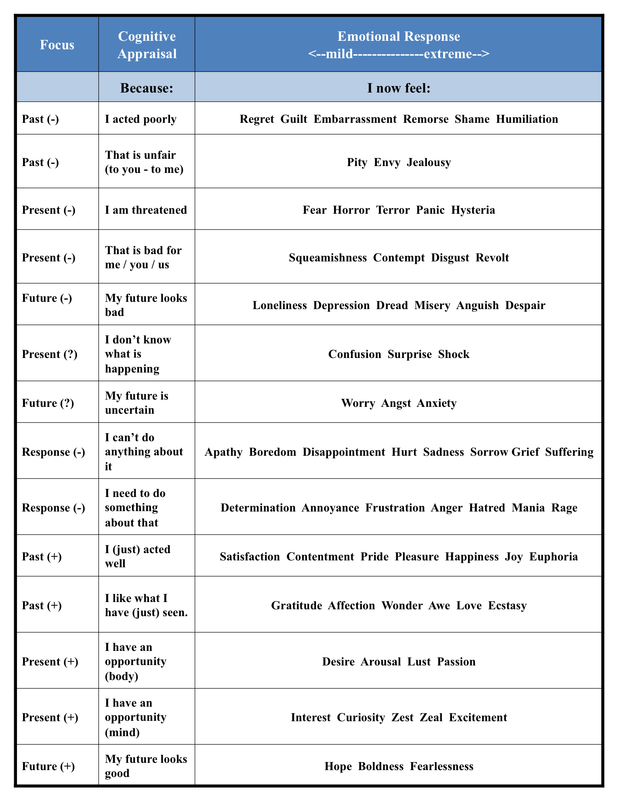Here's why. In the wake of yet another mass shooting in America, the idea that better mental health interventions are needed is being discussed widely. This is a fine idea, but who really understands the definition of mental health? The last version of the Diagnostic and Statistical Manual of Mental Disorders (DSM IV) is over 940 pages and currently costs $84.49 on Amazon. No one in the general public is reading this. (And from the controversy that surrounds it, I'm not sure how many professionals agree with its giant list of disorders and symptoms and treatments anyway.) For widespread interventions into mental health, we need a widespread understanding of mental health. For a widespread understanding, we need something more basic that is easy to apply.
I don't have this figured out yet, but I am trying, and I'm using this website to both ask for help and also spread whatever I find. I happen to be thinking about mental health these days because it's the next issue to talk about in this blog tour of my Evolutionary Philosophy and because I have been considering how to add philosophical counseling to the mix of products and services that I offer. Philosophical counseling has been called therapy for the sane. I have no formal training in this emerging field, and I am still skeptical of some of its proponents who are clearly moral relativists*, but I do believe this idea holds promise. My last two blog posts hint at the kind of sane work one can do to improve one's life. Philosophical counselors can help to guide this work. But philosophical counseling has its limits. Philosophic counselors must know when to contact health professionals, and for me, that time would be when one encounters insanity. When is that? For me, as espoused in my philosophical discussion of emotions, that is when one sees the following:
Insanity is the inability of reason to control the emotions, either through brain chemistry that does not respond to cognitive appraisals or cognitive appraisals that refuse to respond to reality. This lack of control also ranges from mild (neurotic) to extreme (psychotic). Treatment for insanity must be based on the correct cause and severity of the affliction.
This is the kind of early warning sign I believe can be widely understood and disseminated. This is evidence of the kind of lack of mental health that needs intervention. Sometimes pleas for help don't come and sometimes wild mood swings are just temporary, but when emotional responses get stuck, that is when danger is not far behind. Look again at my chart of emotions. From the early evidence, it appears the Newtown killings were insane responses of anger, hatred, and rage. Where does this show on my chart?
For more clarity on this, consider another example of an insane act - the act of suicide. I said that the signs the Newtown murderer likely exhibited were ones that lead to destructive actions towards others. The signs that most often precede suicidal acts of destruction against the self though are persistent feelings of misery, anguish, and despair. From the emotional chart above, we see that those are emotional responses to the negative situation where the person cannot shake the feeling that "My future looks bad." In the case of the Newtown murder-suicide, he was probably plagued with both sets of emotions caused by beliefs that "his future looked bad" and "he needed to do something about that". When these beliefs stubbornly remain intact, emotions become more and more intense until the only solutions to end these feelings are the most extreme actions.
Had the people surrounding the Newtown murderer understood where these emotions come from, they may have been able to intervene with changes to his beliefs, changes to his focus, changes to his cognitive appraisals. If those efforts failed at changing his emotions, then it would have been time to contact professionals for help. Emotions are the sign before the storm. We cannot wait for actions to occur. We must recognize the signs by understanding emotions, by understanding the psychology and philosophy behind them. Evil, we can recognize. Sane actions from extremists with wrongheaded beliefs are easier to see coming, argue with, tip off police about, and stop before they occur. It's the random acts of violent explosion from previously disturbed but law abiding citizens that are much harder to stop.
As I said above, I don't have this all figured out. In my philosophy, I wrote:
Due to a lack of understanding about them, some of these emotions are defined rather fuzzily and may apply to multiple places. If this classification of emotions proves valid, we may decide to define some emotional states more precisely.
Help me refine this chart. Share it. Print it out and use it. Send me comments about where you feel it is wrong. Please listen to my small plea for help so we can all become better attuned to the large pleas for help that are hidden in the darkest parts of our society.
----------------------------------------------------
* Lou Marinoff, the Author of Plato Not Prozac is perhaps the best known philosophical counselor, but his book was filled with contradictory sayings just plucked from philosophers at random wherever he happened to find them. Feeling a mid life crisis coming on? Nietzsche wrote about that. Feeling depressed? Schopenhauer said something about that. Not sure what you are feeling? Roll some dice or draw some straws and let the Tao Te Ching tell you what the solution is. That kind of counseling has little more than random chance of actually helping anyone. As I say in my section on emotions:
Appraising something means understanding whether it is good or bad. In a relativistic or nihilistic worldview, this judgment is difficult so many emotions are out of control. A philosophy is required to control our lives. Appraisals that align with the truth give us the best control. Evolutionary Philosophy seeks those truths.


